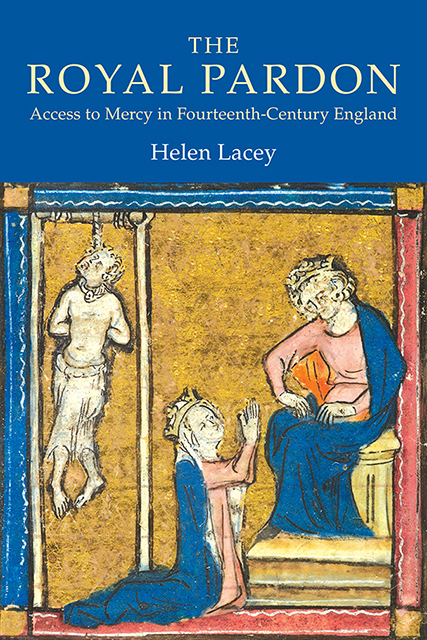Chapter Three - Supplicant
Published online by Cambridge University Press: 07 March 2023
Summary
People petitioned for the king's grace in a variety of different circumstances. Sometimes they offered a reason for the king to pardon them; on other occasions they admitted guilt, but appealed to him to show mercy. In certain situations, supplicants were unable to get their own petition drawn up; they might be in prison awaiting trial, or, having already been outlawed, they might fear any face-to-face meeting with officers of the Crown. In such circumstances, they would seek a patron to have a petition written on their behalf. (The people who acted as ‘intercessors’ are discussed in the following chapter.) Others, however, were free to get their own petition written up – they might do so if they feared arrest, or if they were indignant at a rumour of a ‘malicious accusation’ against them, and sought to clear their name. Essentially, though, these were all people who wanted to take the initiative themselves (and had the means to do so), rather than come before the courts and trust that the trial judge would find in their favour and recommend pardon.
It is not always possible to tell how a particular person obtained their pardon. The text of the pardon itself survives in the government enrolments of all letters patent that were issued from Chancery. These entries record the terms of the letter of pardon as it was written up by the clerk. The salient facts of the pardon are recorded: the name of the recipient, the offence that is to be pardoned, and, on occasion, a reason for the pardon, most commonly self-defence or mischance, is also noted. What they do not reveal, however, is the way the original petition was worded, or if, indeed, it was ever actually presented in written form at all; it is clear that many petitions would have been made orally in this period. To ascertain whether a particular pardon was issued as a result of the recommendation of a trial judge, or a written petition from an individual, they have to be matched against the no comparative central archive of detailed petitions for pardon to the French collection of ‘letters of remission’, used to great effect in the work of Claude Gauvard and Natalie Zemon Davis. Those English petitions for pardon that do survive thus constitute an important source for the study of supplications for royal grace.
- Type
- Chapter
- Information
- Publisher: Boydell & BrewerPrint publication year: 2009



